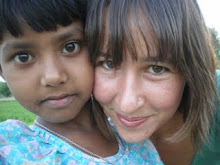Eating is always worship in the sense that the body is our instrument of work and we must take care of it in terms of diet. We should not eat simply for filling the belly. Food should have some taste and give rise to love and life.
The body is a temple: the individual consciousness that dwells within the body is part of the supreme consciousness. Every effort to make our body pure and help its proper growth and development is a form of "worship." So it is with eating as well as cooking. Food that is cooked by someone who does not want to cook, who is not in the proper consciousness, will not be healthy food despite the ingredients. You may not get sick from it, but it is not health producing. We do not eat only the food that is cooked, but the consciousness of the cook as well.
Cooking should be done as an offering to God. Before eating one should first offer a portion on a separate plate to God in meditation. It should be done slowly and deliberately since meditation cannot be done in a hurry. In India, one who has not taken bath and put on clean clothes will not be allowed in the kitchen. One must be clean, and the kitchen also must be clean before starting. One cooking should be in a happy mood, as should be the one who serves the food. Food cooked by one who really likes to cook tastes quite different from that food which is cooked merely out of obligation.
Bathing before cooking has a twofold effect: preparing to bathe makes the cook more conscious of his or her work; in this way it prepares one's mind. It also cleans, purifies, relaxes, and removes fatigue and depression.
The art of cooking involves an emotional relationship between the food and the cook. Cleaning, cutting, chopping food - all these activities can be performed with a sense of rhythm and in a relaxed manner. Cooking should be enjoyed as much as any other art. It becomes a creative art when the person cooking does so with complete emotional involvement. In this way, like a clairvoyant, he or she will receive messages through intuition, creating new tastes and evolving new recipes.
Once the cooking starts, one should not taste the food. If it is enjoyed first by ourselves, it is no longer fit as an offering to God. Once we have offered our food to God, it has become sacred food. We then no longer eat just for ourselves but for the health and sustanence of the divinity that unities all things.




No comments:
Post a Comment